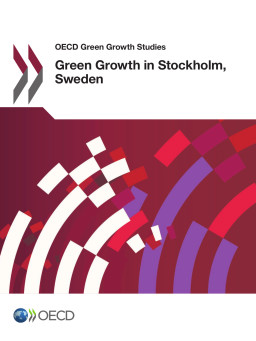Published March 28, 2014
How Sweden can reduce emissions for real
Sweden’s emissions of greenhouse gases are increasing instead of decreasing, if we include the aviation and our imported consumption. The government’s response is to hand over responsibility to the consumers. But the government should look at themselves to reduce Sweden’s carbon footprint both at home and abroad, writes Pia Björstrand and Samuel Jarrick, Klimataktion.
SVT’s newscast last Thursday asked Prime Minister Fredrik Reinfeldt a question that he has never had to consider: Why potray the government continually insures Sweden is a climate model with emissions falling, when our overall impact on the climate is actually increasing?
It is quite correct that Sweden’s emissions, according to official UN statistics dropped by 20 percent since 1990. Partly it’s because Sweden early introduced a carbon tax and invested in heating and more, partly due to emissions of heavy industry moved overseas.
If we instead look at our total consumption, the picture is quite different. Then, total emissions increased by 15 percent during the same period, according to the Environmental Protection Agency statistics from 2012. Increased consumption of harmful climate imported goods and services, electronics, meat, long holidays, etc., have eaten up all climate efforts we made at home.
SVT’s story got the Prime Minister therefore asked whether we Swedes really are living more and more climate-friendly. His response: I think we are largely getting more and more tools that enable to reduce our carbon footprint, but then of course there is also a personal responsibility.
Common political commitment
Fredrik Reinfeldt suggesting that it is up to us consumers to ensure that the carbon footprint is reduced. But it is unrealistic to think that we as individual consumers should be able to do what is needed to meet climate challenges. According to a report from the Nordic Council of Ministers, Sustainable behavior must be promoted by the consistent message that is not only conveyed through information dissemination, but also through other strategies, such as infrastructure, marketing, pricing and social institutions. This calls for a common political commitment to the Swedes should be able to reduce their emissions from consumption.
There is an inconsistency in the government’s climate policy. The goal is to reduce emissions by 40 percent by 2020, where a third of the reduction shall be credited by actions in other countries. The government wants to count on the emission reductions our policies help in other countries, but do not want to take any responsibility for the emissions increases that our lifestyle causes in other countries.
Offensive climate policy
With an aggressive climate policies at home, we can tackle this inconsistency. We propose the following actions:
First Environmental Management across central and local government own procurement, where low carbon footprint given a higher priority than low prices, and where businesses are encouraged to sustainable consumption.
2nd Tax / VAT exchanges where low-carbon goods and services enjoy a more favorable tax treatment than carbon-intensive goods and services.
The third the face of a meat tax, slowing imports of climate-damaging concentrate and reduce the use of chemical fertilizers. Decrease in return VAT on vegetable, locally grown and organic food.
4th Facing a climate tariff on imported emissions heavy goods that provide an economic incentive for producers to shift and consumers to choose climate-friendly goods.
5th Replace consumption driven tax cuts, such as earned income tax credits and interest deductions of investments in climate adaptation and green jobs.
6th Count In international aviation in the national emissions statistics.
7th Let more message than encouraging consumption take place in the public sphere. Limit climate malicious advertising.
Stricter ambitions
The level of ambition needs to be tightened considerably even when it comes to the emissions created in Sweden. The decrease is not nearly as fast as is required if we are to take our justice responsibilities to meet the 2-degree target. Climate science shows that in countries like Sweden would have to be almost independent of fossil fuels in the coming decades about the risks of climate landslides are to be avoided.
The transition should be operated on, for instance through aggressive investment and a conscious use of pension funds for more rapid development of renewable energy sources and energy efficiency among residential and industrial.
If we Succeed the government can reduce both our domestic emissions and the imported emissions, Sweden can be a real role model in international climate policy.
Pia Björstrand and Samuel Jarrick
spokespersons for Climate Action
via How Sweden can reduce emissions for real – Debate – Gothenburg Post.



